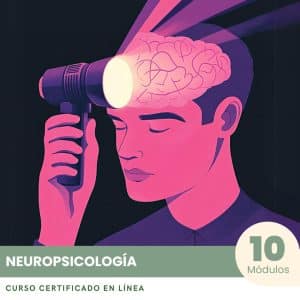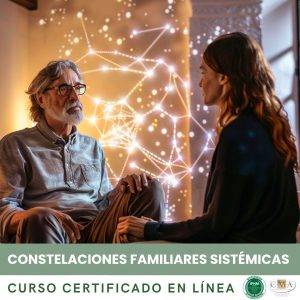6.7 – Assessment and Monitoring Skills of Participants

Assessment and participant progress monitoring skills are essential for a Laughter Therapist. These skills allow them to measure the impact of their interventions, continuously adjust their practice, and support each participant in their journey. Far from being mere control, the evaluation is a valuable tool for dialogue, acknowledgment, and continuous improvement.
A Laughter Therapist sets relevant indicators to evaluate participants’ progress. These indicators can be quantitative, such as the frequency and duration of laughter, or qualitative, such as the ability to let go, express oneself freely, and interact with kindness. They are adapted to the specific objectives of each intervention, whether it’s to reduce stress, boost self-confidence, or foster creativity.
To gather these indicators, the Laughter Therapist uses a variety of tools. They can provide self-evaluation questionnaires at the beginning and end of the session, to measure the evolution of perceived well-being. They can also use observation grids, to note participants’ behaviors, attitudes, speech acts. Individual interviews can supplement these data, to better understand the experiences and needs of each person.
During a 10-session cycle at a vocational rehabilitation center, the Laughter Therapist defined three key indicators: the ability to take initiatives, ease in interpersonal relationships, and self-esteem. At the beginning of the cycle, they conducted a questionnaire to establish a baseline. Throughout the sessions, they meticulously observed each participant’s evolution. At the cycle’s end, they conducted individual interviews to make an assessment. This 360° evaluation allowed them to acknowledge everyone’s remarkable progress and identify development paths for the future.
Evaluation is not limited to formal periods. It takes place in every moment of the session, through attention to reactions, emotions, participants’ verbal and non-verbal signals. The Laughter Therapist develops sensitive listening, attentive presence to capture these fleeting indicators. They recognize an expanding smile, a brightening gaze, a freeing gesture. These micro-progresses are victories to celebrate.
Progress monitoring is a continuous process, nourished by a trusting relationship with the participants. The Laughter Therapist takes the time to interact with each one, informally or in dedicated moments. They encourage the expression of feelings, welcome feedback with kindness. They assist participants in recognizing their journey, identifying their resources and challenges. They adapt their support according to emerging needs.
In a nursing home, the Laughter Therapist has been leading a weekly workshop for several months. Throughout the sessions, a close relationship has been formed with Mrs. Dupont, an initially reserved 80-year-old resident. Session after session, they have observed her evolution: first a few shy smiles, then more and more overt laughs, until she spontaneously spoke to share a funny story. In a one-on-one interview, Mrs. Dupont confesses: “You know, I never thought I would laugh like this again. It reminds me of my youth when I used to run summer camps. I rediscover the joy of being with others, of having fun. Thank you for giving me that back.” These touching words are the highest recognition for the Laughter Therapist.
Evaluation aims not only to measure progress but also to value and anchor it. The Laughter Therapist highlights everyone’s achievements, making them shine within the group. They encourage participants to name their victories, to congratulate each other. They assist them in identifying the key factors of their progress, to better replicate them. They propose adapted challenges, to maintain their commitment and their motivation.
At a corporate team-building event, the Laughter Therapist suggested a group challenge: invent a laughter choreography and present it at the end of the session.Throughout rehearsals, they observed the team’s growing competence: ever-increasing fluid coordination, creative initiatives, mutual encouragement. After the final performance, amidst applause, they invited each participant to express their takeaways from the experience. “We succeeded in creating something together, listening to each other and daring to let go. I am proud of us!” The Laughter Therapist highlighted the key ingredients of this collective success: kindness, mutual aid, audacity. A great lesson to transpose into everyday professional life.
Evaluation is also a valuable tool for the Laughter Therapist themselves. By finely analyzing participants’ progress and difficulties, they can question their practice, identify areas for improvement. They adjust their exercises, pace, posture to better suit the group’s needs. They dare to experiment with new approaches, utilizing the lessons learned. This reflective approach is at the heart of their professional development.
During an end-of-cycle review with teenagers, the Laughter Therapist was struck by the feedback of one young person: “I loved the sessions, but I wish we went even further in letting go, experimenting with more powerful laughs.” This remark was a wake-up call. The practitioner realized that they may have been overly cautious, for fear of pushing too hard. Armed with this awareness, they broadened their range of more intense exercises, while being mindful to respect each one’s pace. This progression allowed them to reach new dimensions with subsequent groups.
Thus, assessment and monitoring skills are at the core of the Laughter Therapist’s stance. They enable them to appreciate participant progress, acknowledge their successes, adjust their support. They build a trusting relationship where everyone feels recognized and supported in their journey. They are also a powerful tool for professional development, for questioning and continuously enriching their practice. Far from being judgment, evaluation is a celebration of the small and large victories, individual and collective, that mark the wonderful journey of laughter.
Takeaways:
– Evaluation and participant progress monitoring are essential for determining the impact of the Laughter Therapist’s interventions, adjusting their approach, and supporting each participant.
– The Laughter Therapist sets both quantitative and qualitative indicators adapted to the objectives of each intervention. They use a variety of tools to collect these indicators: questionnaires, observation grids, interviews.
– Evaluation takes place in every moment, relying on sensitive listening and an attentive presence to participant reactions. Micro-progresses are victories to be celebrated.
– Progress monitoring is based on a trusting relationship with participants. The Laughter Therapist assists them in recognizing their journey and adjusts their support according to their needs.
– Evaluation aims to acknowledge each participants’ success and anchor it. The Laughter Therapist highlights progress, encourages participants to identify and celebrate each other.
– For the Laughter Therapist, evaluation is a tool for professional development. By analyzing participant progress and difficulties, they can interrogate and improve their practice.
👉 To download docx (Editable) file click here : Click here
👉 To download PDF file click here : Click here
👉 To download MP3 file click here : Click here




















































































